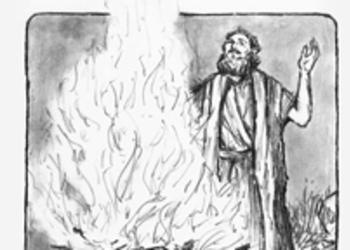Leave Your Gift At The Altar

As Christians, one of our specified tasks is to examine ourselves as we find in 1 Corinthians 11:28.
We talk about examination quite a bit around Passover, but examination is not just a once-a-year activity. Individually we see the things we need to work on internally, but how often do we consider the things we need to work on externally? God is not only concerned with what goes on between our own two ears, but also with how we interact with each other. This is an important point of our Christian walk and one worth considering daily. What I am talking about is forgiveness and reconciliation between brothers and sisters in Christ.
How important a point is this? God considers this so important that He tells us in Matthew 5:21-24 that hatred in our heart toward someone else is the same as murder, and if that is where we are in our heart then God expects us to pause our worship before Him and go fix the problem between us and that person. A similar thought is repeated in the Model Prayer in Matthew 6:12 when we are told that our forgiveness before God is dependent in part upon our forgiveness of others. This theme of forgiveness and reconciliation – and by extension supporting one another – is replete throughout the New Testament especially.
Let’s look at some examples: 1 John 4:20-21, “If someone says, ‘I love God,’ and hates his brother, he is a liar; for he who does not love his brother whom he has seen, how can he love God whom he has not seen? And this commandment we have from Him: that he who loves God must love his brother also.” In Colossians 3:13 we are told to “forbear” one another; in 2 John 1:5, to “love one another;” in 1 Peter 3:8 to have “compassion one for another;” in James 5:9 we are told not to “grudge not one another;” to “exhort one another” in Hebrews 10:25; and to “edify one another” in 1 Thessalonians 5:11. We are not to do or say as Narvaez, the Spanish patriot, is reported to have said as he lay dying – his priest asked him whether he had forgiven all his enemies, to which Narvaez looked astonished and said, "Father, I have no enemies, I have shot them all."
As Narvaez showed, forgiveness doesn’t come easy. Even when we forgive, the memory and hurt can remain for some time. It has been said that forgiveness is a bell which is rung by pulling on a rope. Even after letting go of the rope, the bell keeps on swinging and ringing. The ringing continues albeit slower and slower until there's a final ring and it stops. When we forgive, we take our hand off the rope, but if we've been tugging at our grievances for a long time, we shouldn't be surprised if the old angry thoughts are there for a while. They're just the ringing of the bell as it slows down – until finally the ringing stops for good.
Let’s remember to be reconciled with each other regularly so we can be reconciled to God – and as the apostle James wrote, “Therefore, my beloved brothers, let every man be swift to hear, slow to speak, slow to wrath.”
